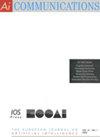生命周期策略重用和任务容量的重要性
IF 1
4区 计算机科学
Q4 COMPUTER SCIENCE, ARTIFICIAL INTELLIGENCE
引用次数: 0
摘要
人工智能领域的一个长期挑战是终身强化学习,学习者被按顺序分配许多任务,必须在任务之间转移知识,同时避免灾难性的遗忘。策略重用和其他多策略强化学习技术可以学习多个任务,但可能产生许多策略。本文提出了两个新颖的贡献,即1)终身策略重用,一种模型无关的策略重用算法,通过策略优化和自适应策略选择的结合,通过优化固定数量的近最优策略来避免生成许多策略;2)任务容量,一个策略可以准确解决的最大任务数量的度量。比较两种最先进的基础学习器,结果表明在18个任务部分可观察的Pacman域和多达125个任务的Cartpole域上,终身策略重用和基于任务容量的预选的重要性。本文章由计算机程序翻译,如有差异,请以英文原文为准。
Lifetime policy reuse and the importance of task capacity
A long-standing challenge in artificial intelligence is lifelong reinforcement learning, where learners are given many tasks in sequence and must transfer knowledge between tasks while avoiding catastrophic forgetting. Policy reuse and other multi-policy reinforcement learning techniques can learn multiple tasks but may generate many policies. This paper presents two novel contributions, namely 1) Lifetime Policy Reuse, a model-agnostic policy reuse algorithm that avoids generating many policies by optimising a fixed number of near-optimal policies through a combination of policy optimisation and adaptive policy selection; and 2) the task capacity, a measure for the maximal number of tasks that a policy can accurately solve. Comparing two state-of-the-art base-learners, the results demonstrate the importance of Lifetime Policy Reuse and task capacity based pre-selection on an 18-task partially observable Pacman domain and a Cartpole domain of up to 125 tasks.
求助全文
通过发布文献求助,成功后即可免费获取论文全文。
去求助
来源期刊

AI Communications
工程技术-计算机:人工智能
CiteScore
2.30
自引率
12.50%
发文量
34
审稿时长
4.5 months
期刊介绍:
AI Communications is a journal on artificial intelligence (AI) which has a close relationship to EurAI (European Association for Artificial Intelligence, formerly ECCAI). It covers the whole AI community: Scientific institutions as well as commercial and industrial companies.
AI Communications aims to enhance contacts and information exchange between AI researchers and developers, and to provide supranational information to those concerned with AI and advanced information processing. AI Communications publishes refereed articles concerning scientific and technical AI procedures, provided they are of sufficient interest to a large readership of both scientific and practical background. In addition it contains high-level background material, both at the technical level as well as the level of opinions, policies and news.
 求助内容:
求助内容: 应助结果提醒方式:
应助结果提醒方式:


